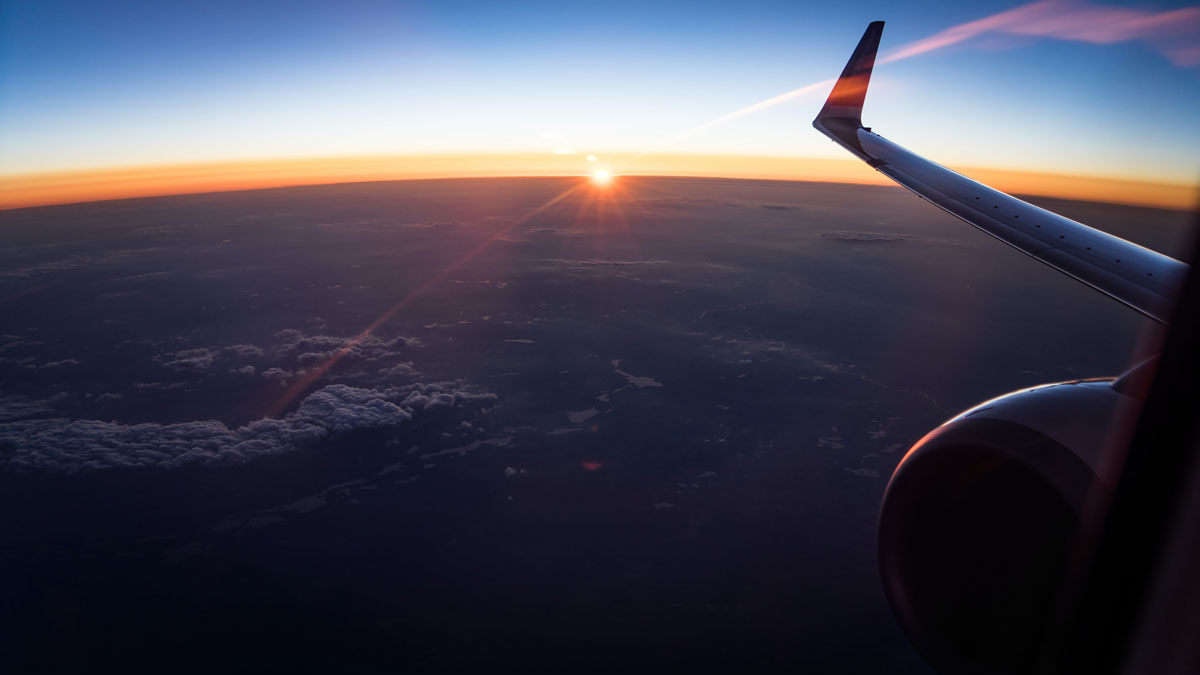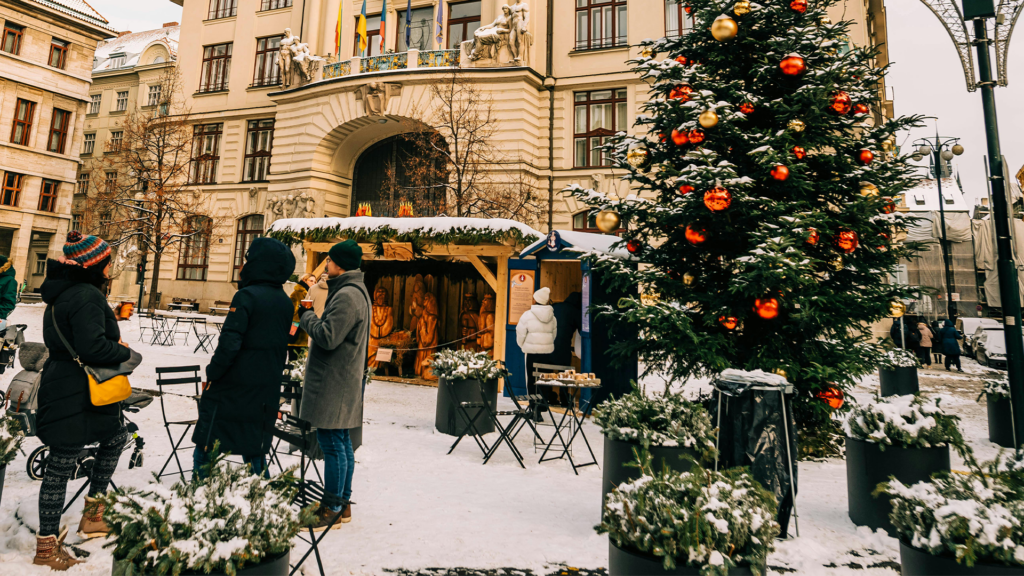I watched as the plane made its way across the interactive map in the back of the seat in front of me. If you’ve ever been on a long-haul flight, there is a time for watching movies, a time for sleeping and then there are those in between times when you can’t sleep and don’t want to watch anything. Suddenly the flight path seems exceedingly interesting.
It was clear the plane was charting a careful course through the sky, between and around war zones. Names on the map jumped out from news headlines of the past few years—Mosul, Baghdad, Raqqa. The Israel-Palestine conflict had just broken out and I watched to see how close we might get to that region, as we flew up across the Arabian Peninsula and on toward Europe. As I looked to find Israel, the top of the map began to reveal Ukrainian cities—Sevastopol and Odessa.
I was heading to Romania, an immediate neighbour of Ukraine, so it was little surprise that those cities would appear on the map. Now, these flight path indicators zoom out yet at one point, the Middle East and Ukraine conflict zones were both visible as we thread the needle between them. In reality, we were hundreds of kilometres from any active conflict, yet it felt a whole lot closer than Australia does. It was surreal to be flying right between two warzones, even though we soared far above them, and I was reminded how lucky we are in the South Pacific region to be so far from that kind of conflict.
This tired world needs peace. Unfortunately, something in human nature leads us to compete and to believe that we have to get ahead, regardless of who we step on to get there.
Jesus came offering a reset, a resolution to the constant striving against others to get ahead:
“Suddenly a great company of the heavenly host appeared with the angel, praising God and saying, ‘Glory to God in the highest heaven, and on earth peace to those on whom his favour rests’” (Luke 2:13,14).
Peace on earth. It seems like an unattainable dream.
Yet Jesus can bring peace to our lives, peace to our worries, and peace to any interpersonal conflict we might have. He challenges us to forgive, to love our enemy and our neighbour and to find ways to better the world.
This is not passive peace that means we keep putting ourselves in toxic situations.
We should be people of peace and advocates for peace. We must actively love people we disagree with and dislike. This means serving them.
This time of year should be a season of peace but is too often busy, stressful and conflict-rich: fighting over parking spaces at the shops, with family members we clash or with ourselves for over indulging on our finances or dietary choices.
When my baby son is restless in the night, he often ends up in our bed. While he was tossing, turning and crying out in his cot, he is suddenly serene and still. He knows he is safe, he feels our presence and he can sleep “like a baby”.
Jesus’ presence in our lives can give us the same assurance.
This Christmas, let’s pray for and remember that, even though we might be having a holiday or a nice safe time with family and friends, there are people in our world who are living in the hell of war, and feel so very far from peace. Yet they too can experience the love and completeness found in Jesus. Let’s pray that they can find Him and that war ends. Let us pray we ourselves experience Jesus’ peace that passes understanding. And let us look for ways to gift peace to others, perhaps serving those in need, sharing a meal, being a listening ear to someone who is lonely or struggling at this time of year.
The only hope for peace in this world is Jesus. He is the only agent who can bring peace, and when He returns, the city will no longer needs gates. But as His followers, we can start the journey toward peace by doing our best to live by His teachings and share His good news with the world.






